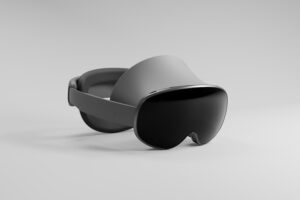Imported video game consoles like the PS5 Pro could get more expensive next year if President-elect Donald Trump’s proposed tariffs are implemented — and gamers are worried.
During his 2024 campaign, Trump promised tariffs of up to 20% on all imported goods and 60% on goods from China. However, tariffs are paid by the importer — in this case, US companies — and the cost of these taxes could be passed along to Americans in the form of higher prices.
Does this mean imported gaming consoles like the PS5 Pro could cost more in the near future? It’s hard to say for sure, but based on historical context, most experts do expect price increases from these tariffs. If enacted, Trump’s tariff plan could increase the cost of video game consoles by 40% on average, a study by the Consumer Technology Association, the company that puts on CES, found. That means the PlayStation 5 Pro could see a steep price jump from $700 to $980.
Does it make sense to buy the PS5 Pro now, even if you don’t have the money upfront, to avoid a higher price tag in the future? After writing about credit cards for years, I worried that what you’d pay in interest charges could cost you far more than a potential $280 price hike. So, I spoke to other experts and dug into different buying options to see if the numbers backed up my theory. Here’s what I learned.
Will Trump’s tariffs increase the PS5 Pro’s price?
If Trump implements the tariffs he’s proposed, it’s possible that the PS5 Pro could end up costing around $980, based on the CTA’s data.
But the reality could be more complicated.
“We can safely say, given [Trump’s] previous pronouncements, that goods from China will face heavy tariffs,” said Usha Haley, the W. Frank Barton Distinguished Chair in International Business at Wichita State University. However, Haley pointed out that the PS5 Pro is produced by Sony, a Japanese company, and has several parts manufactured in China.
Several yet-unknown factors could affect how the tariffs would apply to the PS5 Pro, according to Haley. Questions that are still unanswered include:
- Would any electronics get an exemption from the tariffs?
- Would the PS5 Pro be considered “made in China” because parts of it are manufactured there?
- Would Sony or its Chinese suppliers cut prices in response to anticipated tariffs, or would they pass along these prices to customers?
- How soon would the tariffs and after-effects kick in?
With so much uncertainty, the devil is in the details.
“It’s fairly complex and probably premature to make predictions about pricing under tariffs as President-elect Trump has released few details on his policies,” said Haley.
Should you buy the PS5 Pro now to avoid possible price hikes?
Just for fun, let’s assume that the Consumer Tech Association’s predictions are right and that tariffs will cause the PS5 Pro’s price to jump by 40%. If you don’t currently have enough cash on hand to buy the console, would you save money by buying it now with a credit card and then paying off the balance over time? Or should you keep saving until you can buy it outright, even if it means paying more later?
Using a credit card to finance any purchase means the odds are stacked against you. Credit cards’ high interest rates — currently ranging from 20% to 30% on average — make them one of the most expensive types of debt around.
But if you’re still curious, here’s how the math works out, depending on your strategy.
The buy now, worry later approach
If your plan is to buy the PS5 Pro and make minimum monthly payments until it’s paid off, I urge you to reconsider. This approach is just about the worst thing you can do.
Don’t believe me? Let’s take a closer look.
Let’s say you put the $700 charge on a credit card with a 22% APR, the average credit card interest rate according to the Federal Reserve. Assuming you don’t put any other charges on the card and your issuer calculates the minimum monthly payment as interest plus 1% of the balance, your minimum monthly payment would start at $19.83 a month and would decrease slightly each month as you pay down the balance.
$20 bucks a month sounds very doable, right? That’s what credit card issuers want you to think.
With this strategy, it would take you 86 months (that’s over seven years) to be rid of your debt. In that time, you’ll pay $643.20 in total interest. That’s more than double the extra $280 from the price hikes and seven years of being in debt.
💰💰💰 Verdict: A strong no. You’d basically be paying for two PS5 Pros with this approach — and that’s assuming you don’t accidentally miss a payment.
The credit card as a payment plan method
Let’s say you take a more calculated approach. You decide upfront how much you can contribute to your “PS5 fund” each month, buy the console now with your credit card, and then make consistent monthly payments toward the balance as if it’s an installment loan. Would this strategy be cheaper than accepting the price hike?
It depends. Here’s how different monthly payments will affect the payoff time and total interest charges of $700 principal at a 22% APR:
|
Monthly payment |
Time to pay off |
Total interest |
Total amount paid |
|
$25 a month |
40 months |
$291.09 |
$991.09 |
|
$26 a month |
38 months |
$273.82 |
$973.82 |
|
$50 a month |
17 months |
$116.43 |
$816.43 |
|
$100 a month |
8 months |
$56.24 |
$756.24 |
The larger your monthly payment, the faster you’ll pay off the balance, and the less interest you’ll accrue. Using this method, there is a point where the money you pay in interest is less than the expected $280 price hike from the tariff.
That tipping point is about $26. If you pay that much or more towards your debt each month until the balance is paid off, it’s technically cheaper to buy it now with a credit card rather than buy it later after the tariff.
However, that break-even point changes depending on your specific credit card’s interest rate. With a 30% APR, you’ll need to pay about $36 a month for 27 months to come out ahead.
So, is this a good option? Experts say no.
“Even when the numbers suggest you’ll pay less in credit card interest than a potential tariff-driven price increase, I don’t recommend charging a PS5 Pro to a traditional, high-interest credit card,” said Bernadette Joy, a personal finance coach and CNET Money expert review board member.
Using credit cards to finance purchases you can’t afford to buy outright is a dangerous practice. Joy added that it’s never worth falling into a debt cycle over non-essential items like this.
💰💰 Verdict: You could save money, but this method is too risky.
The 0% APR card strategy
The above examples assume you use a regular, interest-charging credit card for the purchase. But if you’re determined to buy a PS5 Pro with borrowed money, you might lean toward a 0% APR credit card.
Certain cards offer a 0% introductory APR on purchases for a limited amount of time from account opening. If you can pay off the full principal before the introductory period ends, it’s essentially an interest-free loan. You have to be diligent about paying off the entire principal within that time, or any remaining balance will again accrue interest at the standard purchase APR once the introductory period ends.
However, these cards usually have higher credit requirements, so if you don’t have a good to excellent credit score, you may not qualify for one.
If you do qualify, here’s how much you’d need to pay each month to pay off a $700 principal without interest, depending on the introductory period length:
Comparing 0% intro APR cards
| Credit card | Intro APR period | Monthly payment required | Intro APR terms |
|---|---|---|---|
| Wells Fargo Active Cash® Credit Card | 12 months | $58.34 | 0% intro APR on purchases for 12 months from account opening (20.24%, 25.24% or 29.99% variable APR after) |
| Chase Freedom Unlimited® Credit Card | 15 months | $46.67 | 0% intro APR on purchases for the first 15 months from account opening (19.74% to 28.49% variable APR after) |
| Wells Fargo Reflect® Card | 21 months | $33.34 | 0% intro APR on purchases for the first 21 months from account opening (18.24%, 24.74%, or 29.99% variable APR after) |
Assuming you pay off the purchase before interest kicks in, this option could be more affordable than paying a higher price for the console if tariffs are implemented. However, that doesn’t make it a better option than waiting to save up money for the purchase.
It’s easy to forget to pay credit cards or to put payments on hold if a surprise expense pops up, which could get you into trouble. Aside from interest charges, you should consider how carrying a balance could affect your credit score and how being in debt could affect your overall financial or mental health.
💰 Verdict: Yes, you’ll save money by using a 0% intro APR credit card to finance the PS5 Pro, rather than paying a higher price tag if tariffs are implemented. It’s the best credit card financing option if you qualify, but there are still risks.
The buy now, pay later plan route
Okay, by now you probably know the deal — credit cards have high interest rates, so financing anything on them is risky. But buy now, pay later plans advertise no interest financing, so they should be safer, right?
It depends. Many BNPL plans let you finance an item for no interest over six to eight weeks. This shorter time frame will usually result in a larger required payment (usually biweekly).
If you’ll have the full $700 saved in two months, I’d normally recommend putting money into a high-yield savings account and just waiting to buy the console then. Getting your gratification a month or two sooner isn’t worth the risk of potential fees if you miss a payment.
However, in this case, if you know you can pay the installments on-time, and you don’t want to wait an extra month or two to buy the console outright, a BNPL plan may work for you. You’d pay less than if you waited to buy the console post-tariffs and it could help you score the PS5 Pro in time for Christmas.
Just proceed with caution. If you’ve run into trouble with BNPL plans in the past or are worried about saving up for the next installment loan, then I’d suggest skipping this option.
💰 Verdict: Yes, you could save money with a BNPL plan, rather than paying a higher price later. However, you’ll need to be able to fully pay off your purchase in six to eight weeks.
Should you buy the PS5 Pro with a credit card or BNPL plan?
In some cases, putting a PS5 Pro on a credit card or BNPL plan could cost you less than paying for the console later if the price goes up to almost $1,000. But is financing the console a smart option?
Probably not.
“Even with the best intentions, it’s easy to let the balance linger, especially if an emergency arises. The temptation to make only the minimum payment can lead to higher costs over time,” said Joy.
Plus, she added, the money you use to pay off credit card interest is money that you’re pulling away from other goals.
Instead, Joy recommends saving for the console in a high-yield savings account so you can buy it outright, regardless of the price. She suggests getting creative if you want to buy the PS5 Pro quickly by temporarily cutting unnecessary expenses like restaurant meals or subscriptions out of your budget.
CNET Money credit card editor Evan Zimmer agrees. As Zimmer shared in his recent PS5 Pro story, we haven’t yet seen discounts on the new PS5 Pro, but we could start to see deals on this console next year, which could lower the overall price tag.
If you do decide to finance the PS5 Pro, opt for a 0% APR card with a long introductory period. If you’ll have the money saved in a few weeks, a BNPL plan could also make sense. Either way, make sure you have a solid repayment plan in place and know all of the risks.
Above all, Joy said, “Be intentional with your spending, and don’t let short-term decisions sabotage your long-term financial freedom.”
Or you could lose out on a lot more than a gaming console.







